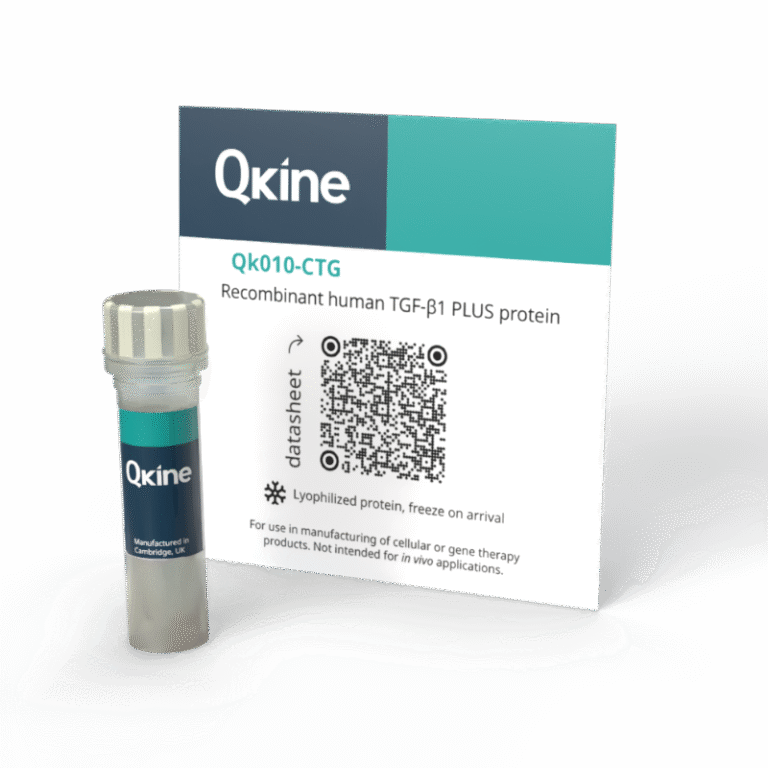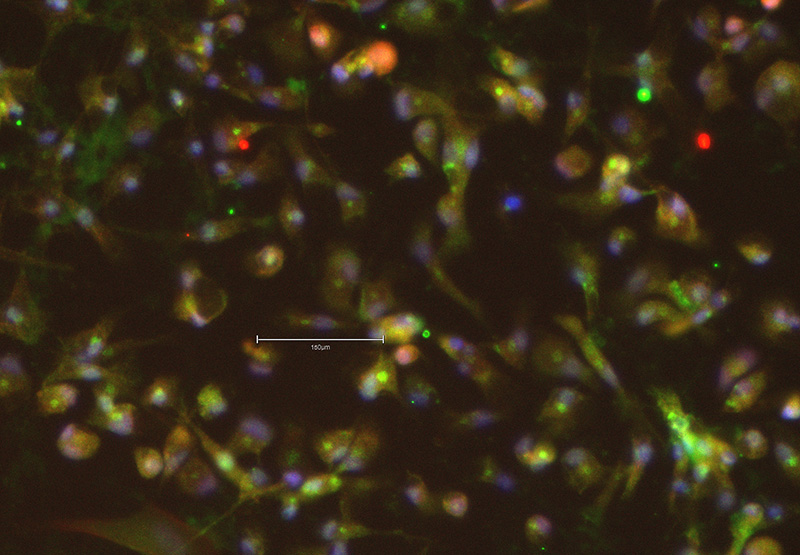Bioactivity. Guaranteed.
Raising the standard in bioactive protein manufacturing and innovation
Qkine is committed to manufacturing bioactive proteins of the highest quality to enhance scientific outcomes and improve reproducibility.
Our robust animal-free manufacturing platform, along with rigorous quality control procedures, ensures exceptional bioactivity and consistent performance from lot to lot, guaranteeing outstanding performance in your applications. We proactively leverage our expertise in manufacturing and protein engineering to develop unique optimized proteins designed to address fundamental biological, translational and scalability challenges.
Our product portfolio comprises growth factors and cytokines tailored for stem cell and organoid culture, as well as biomarkers and attachment factors. We actively support emerging fields such as cellular agriculture, regenerative medicine, synthetic hydrogels, organ-on-a-chip technology, and bioprinting.
To ensure absolute reproducibility and optimize scientific outcomes, all our products rigorously adhere to the Nine-point Qkine Quality Commitment.

Scientific areas
Qkine manufacture a portfolio of high purity, highly bioactive growth factors for pluripotent stem cell maintenance and differentiation. Qkine proteins are optimized for research areas such as neural differentiation, organoid culture, cellular agriculture and hematopoietic and hepatic research.
Products
Qkine proteins are completely animal-origin free and high purity for reproducible cell, stem cell and organoid culture. With bioactivity optimized and guaranteed to be consistent lot-to-lot Qkine growth factors and cytokines are the highest quality, all proteins manufactured in Cambridge, UK
Recombinant human TPO (Qk098)
High purity, highly bioactive thrombopoietin (TPO) to support the self-renewal and maintenance of hematopoietic stem cells.
- Highly bioactive protein with lower EC50 than alternative supplier proteins
- High purity monomer, animal origin-free, tag and carrier free
- Suitable for reproducible hematopoietic cell cultures and the maturation of megakaryocytes into platelets
Cell therapy grade TGF-β1 PLUS™ protein (Qk010-CTG)
The first commercially available animal origin-free TGF-β1 for cell and gene therapy
- Extended QC, risk assessment, CoO, CoA documentation
- Manufactured in an ISO 9001:2015-certified facility
- ISO 20399:2022 standard and GMP compliant
Recombinant human IL-34 PLUS™ protein (Qk091)
Cytokine involved in regulating the differentiation, survival, and activation of monocytes, macrophages, and osteoclasts.
- Qkine optimized sequence to product a highly and consistently bioactive IL-34 protein
- Suitable to reproducible microglial differentiation from iPSC
- Highly pure, animal origin-free, tag free and carrier free
Latest News
Explore the latest news on what is happening at Qkine and our blogs with updates on recombinant protein technology, stem cell and organoid research and translational applications.










